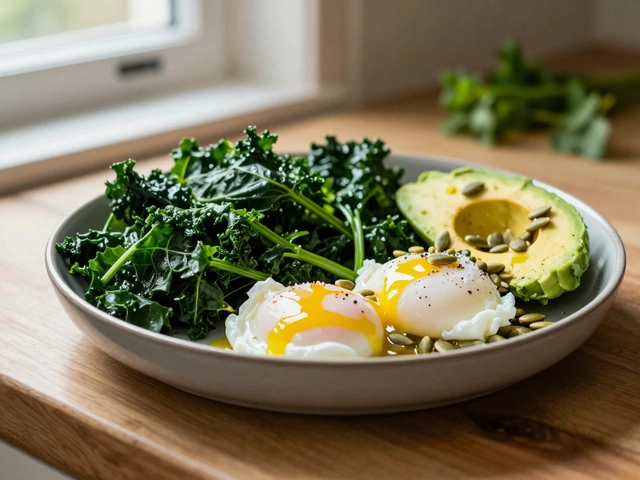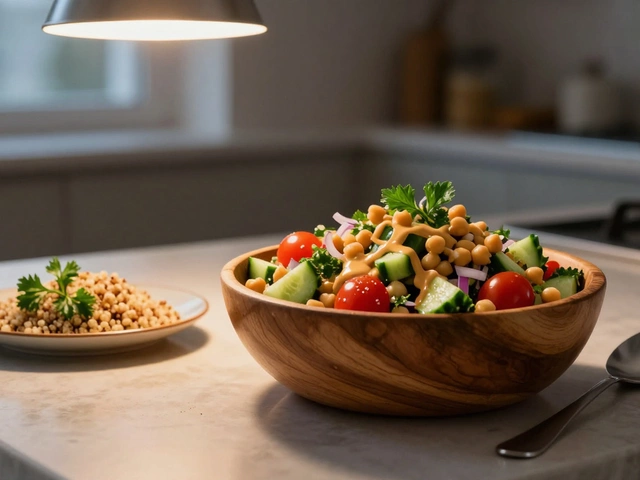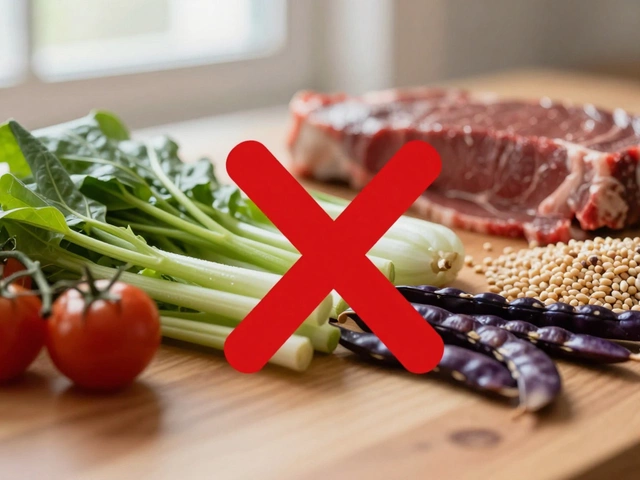Vegetarian Nutrition: Simple Tips for Healthy Plant‑Based Eating
If you’ve switched to a vegetarian diet or are thinking about it, the first thing that pops up is nutrition. You want to feel strong, keep energy up, and avoid missing out on key nutrients. The good news? Whole foods, beans, nuts, and veggies can cover almost everything you need—if you plan a bit.
Protein Without Meat
Protein is the most talked‑about nutrient for vegetarians. The trick is to mix different plant proteins throughout the day. A cup of lentils gives about 18 g of protein, a handful of almonds adds another 6 g, and a slice of whole‑grain bread tops it off with roughly 4 g. Combine beans with rice, tofu with quinoa, or hummus with whole‑grain crackers, and you’ll hit your daily goal without feeling like you’re chewing on a protein bar.
Iron, B12, and Other Essentials
Iron from plants isn’t absorbed as well as the kind in meat, but you can boost it with vitamin C. Add a squeeze of lemon to spinach salad or have strawberry slices with a bean bowl. As for vitamin B12, it’s mostly in animal products, so a reliable fortified cereal, nutritional yeast, or a modest supplement is the safest route. Don’t forget calcium—think fortified soy milk, kale, and tofu made with calcium sulfate.
Omega‑3s often get left out of vegetarian menus. Flaxseeds, chia seeds, and walnuts are easy sources. Grind flaxseeds before mixing them into oatmeal or smoothies for better absorption. A tablespoon of chia seeds in a pudding gives you a solid dose of ALA, the plant version of omega‑3.
When you shop, keep a few pantry staples on hand: canned beans, lentils, quinoa, brown rice, and a bag of mixed nuts. These items last long, are cheap, and form the backbone of many meals. Pair them with fresh veggies, a splash of olive oil, and some herbs, and you’ve got a quick, balanced plate.
Meal prepping can save you from calling in fast food when you’re busy. Cook a big pot of lentil soup on Sunday, portion it into containers, and grab one for lunch. Throw a salad together with mixed greens, chickpeas, and avocado for dinner. Simple, tasty, and you won’t worry about missing nutrients.
Listen to your body. If you feel sluggish, check if you’re getting enough iron or B12. A quick blood test can guide you. Adjust your meals, add a supplement if needed, and you’ll notice more energy within a few weeks.
Bottom line: a vegetarian diet can be nutritionally complete with the right combos. Mix beans, grains, nuts, and colorful veggies daily, boost iron with vitamin C, and consider fortified foods or a small supplement for B12. Your body will thank you, and your meals will stay interesting and affordable.

What Nutrients Do Vegetarians Lack the Most?
by Landon Weathers / 13 Mar 2025Vegetarians often face challenges in maintaining a well-rounded diet due to missing out on certain nutrient-rich foods. However, with the right knowledge and meal planning, these deficiencies can be addressed effectively. This article explores the most common nutrient gaps in vegetarian diets and offers practical advice on how to fill them. Learn which nutrients to focus on and how to incorporate them into your daily meals through easy-to-follow recipes. Ideal for anyone seeking a balanced vegetarian lifestyle, this guide aims to keep you informed and healthy.


